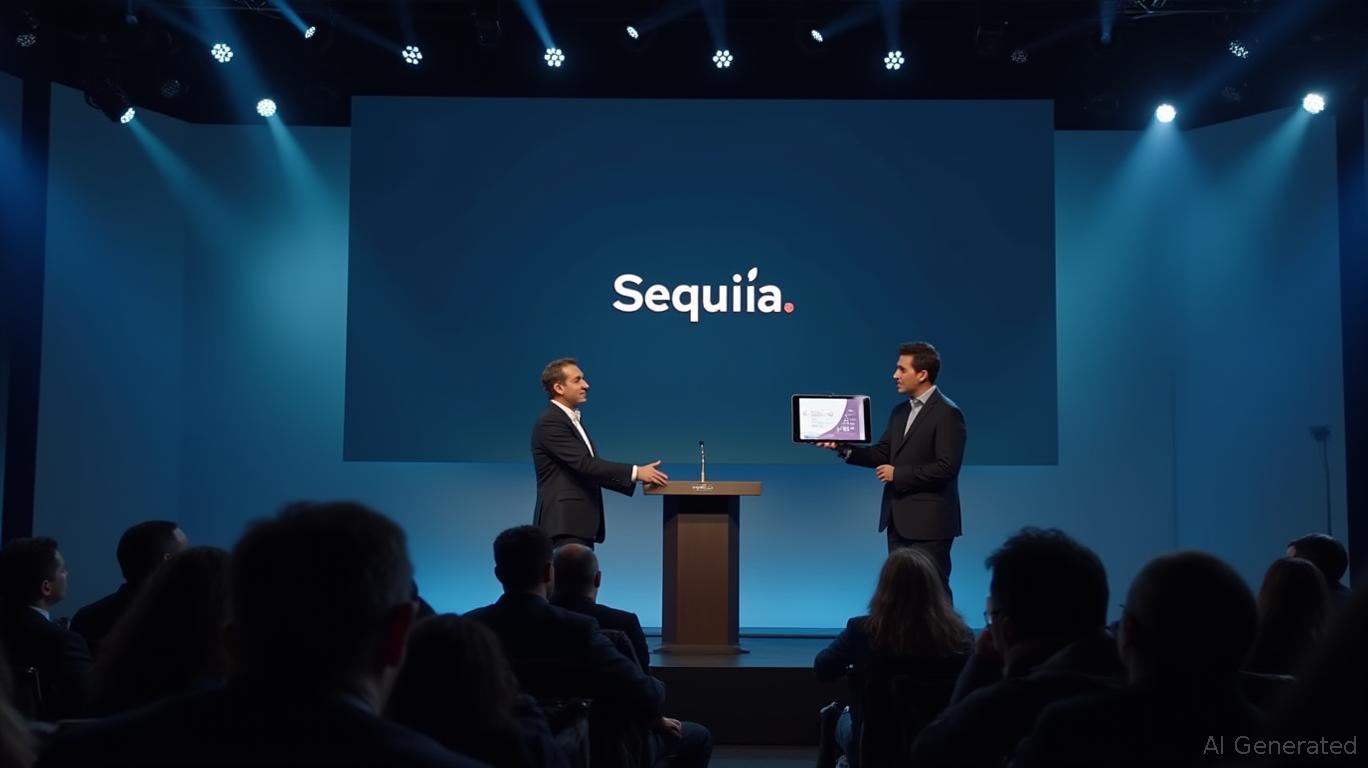Sequoia's Change in Leadership: Will Advancements in AI Help Restore Broken Trust?
- Sequoia Capital's Roelof Botha steps down amid reputational crises, ceding leadership to Alfred Lin and Pat Grady during strategic recalibration. - The transition follows Islamophobic controversy, COO's exit, and a $200M FTX loss, prompting cultural and financial restructuring efforts. - New leaders prioritize trust restoration via a $950M AI fund targeting disruptive startups, signaling a return to U.S.-centric operations and ethical accountability. - The shift reflects industry-wide adaptation to geopo
Roelof Botha, who played a pivotal role in Sequoia Capital’s international growth, has stepped down from his position as managing partner. Leadership is now being handed over to Alfred Lin and Pat Grady during a time of reputational challenges and strategic shifts. Presented as a planned succession, this change comes as the firm faces scrutiny from recent controversies, such as its limited response to partner Shaun Maguire’s Islamophobic comments and the subsequent resignation of COO Sumaiya Balbale. The leadership change also follows financial difficulties, including a $200 million loss from Sequoia’s investment in FTX, as reported in a
With Lin—recognized for his operational acumen with founders like Airbnb’s Brian Chesky—and Grady, a strategist with a strong data focus, taking the helm, Sequoia signals a renewed emphasis on U.S.-based leadership and rebuilding trust among limited partners and startups. Their leadership begins as Sequoia unveils a $950 million plan to support early-stage AI ventures worldwide, allocating $750 million to Series A investments and $200 million to seed funding. These funds, described as a wager on discovering the “next Amazon in the AI age,” demonstrate Sequoia’s ongoing dedication to supporting transformative entrepreneurs despite recent setbacks.

This leadership handover is closely linked to Sequoia’s ongoing cultural challenges. Maguire’s posts, which referred to New York Assemblyman Zohran Mamdani as an “Islamist” and a “wolf in sheep’s clothing,” drew sharp criticism from founders, investors, and advocacy groups, according to a
Sequoia’s difficulties are not limited to social media controversies. The firm’s 2023 reorganization, which split its operations in India and China, along with its 2021 move to an evergreen fund structure, reflect a broader industry shift in response to geopolitical uncertainty and market fluctuations. Botha’s era, defined by global expansion and consolidation, now gives way to Lin and Grady, who are tasked with steering the firm through a period of fragmentation and increased scrutiny. Analysts suggest their immediate challenge is to restore both internal morale and external trust, a complex task given Sequoia’s reputation for prioritizing profits over values.
As Sequoia turns its attention to artificial intelligence, the recent leadership changes highlight the ongoing tension between driving innovation and upholding ethical standards. The firm’s ability to reconcile its legacy of supporting major tech companies like Google and Nvidia with its current cultural issues will be crucial in determining whether it can reestablish itself as a leader in both ethics and venture capital performance.
Disclaimer: The content of this article solely reflects the author's opinion and does not represent the platform in any capacity. This article is not intended to serve as a reference for making investment decisions.
You may also like
Bitcoin Updates: Fed Divided Over Rate Reduction Amid Conflicting Inflation and Employment Concerns
- Fed officials debate December rate cuts amid conflicting inflation data and labor market risks, with no consensus on policy path. - Short-term inflation expectations rose to 4.7% in Nov 2025, while long-term forecasts stabilized at 3.6%, reflecting cautious public confidence. - Government shutdown delays critical economic data, forcing policymakers to rely on limited information as officials warn against both high rates and rapid cuts. - Tech/industrial firms showed resilience with strong Q3 earnings, co
LUNA Rises 10.0% in a Day Despite Market Fluctuations
- LUNA surged 10.0% in 24 hours on Nov 7, 2025, but remains down 78.51% year-to-date amid broader crypto market declines. - Analysts attribute the short-term rebound to buying activity, yet highlight persistent bearish trends and macroeconomic uncertainties. - Technical indicators show LUNA trading below 50-day and 200-day moving averages, reinforcing the continuation of a long-term downtrend. - Backtesting suggests sharp price surges like LUNA's 5%+ daily gains historically lack sustained momentum without
European Central Bank to launch digital euro pilot phase starting in 2027
DeFi protocol Balancer suffers 128 million USD hack